北京时间1月19日,国际计算机学会(Association for Computing Machinery,简称ACM)公布了2022年度国际计算机学会院士(ACM Fellow)名单,以表彰来自世界各地高校、企业和研究机构的研究人员,在算法、计算机科学教育、密码学、数据安全和隐私、医疗信息学以及移动和网络系统等领域的贡献。
作为全世界计算机领域影响力最大的专业学术组织,ACM 所评选的图灵奖(A.M. Turing Award)被公认为是计算机领域的诺贝尔奖,而 ACM Fellow 则是由 ACM 为表彰其会员在计算和信息技术方面所取得的杰出贡献而授予的至高荣誉。获得 ACM Fellow 殊荣的会员不到 ACM 全球会员总数的百分之一。
本年度新入选科学家中共有 57 人,他们的贡献涉及网络安全、人机交互、移动计算和推荐系统等领域。今年的入选者包括了梅宏、俞栋、李航、俞益洲、邢波、郭宗杰等多位华人学者。
入选华人学者介绍

李航,现任字节跳动人工智能实验室总监,北京大学、南京大学客座教授。他是 IEEE Fellow、ACM 杰出科学家、CCF 高级会员。
李航本科留学于日本,在京都大学电气电子工程系就读,开始接触自然语言处理,之后于1994年在日本东京大学攻读计算机科学博士学位,1998年博士毕业。1990年至2001年,李航曾在日本NEC公司中央研究所担任研究员,期间从事了NEC文本数据挖掘产品的开发。2001年至2012年就职于微软亚洲研究院,任研究员、主任研究员、高级研究员。2012年至2017年,他在华为诺亚方舟实验室任首席科学家、实验室主任,2017年离职,加入字节跳动。
李航的研究领域包括信息检索、自然语言处理、统计机器学习及数据挖掘。他曾出版三部学术专著,其中《统计学学习方法》是机器学习的宝典,引领了无数研究者进入机器学习领域。他在顶级国际学术会议和顶级国际学术期刊上发表了上百篇学术论文,包括 SIGIR、WWW、WSDM、ACL、EMNLP、ICML、NeurIPS、SIGKDD、AAAI、IJCAI 等。他在 Google Scholar 上的被引量超过 26000 次,h-index 高达 74。
2019年,李航作为唯一华人当选ACL Fellow,当选理由为“他对信息检索,特别是排序学习做出了基础性贡献,在深度学习和对话生成方面做出了突出贡献,并且促进了中国自然语言处理(NLP)的发展和商业化。”
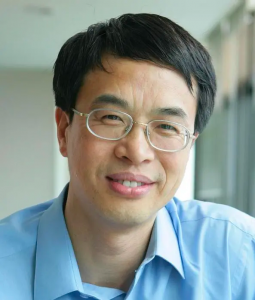
朱文武,清华大学计算机系教授。长期从事网络多媒体计算等研究工作,在多媒体网络计算和跨空间大数据分析方面取得多项创新科技成果。主持国家973项目、国家基金委重大项目等多个项目,2次获国家自然科学二等奖、4次获省部级一等奖。出版《Optimal Resource Allocation for Distributed Video and Multimedia Communications》(2014)、《Social Video Content Delivery》(2016)、《Online Social Media Content Delivery: A Data-driven Approach》(2018)、《Automated Machine Learning and Meta-Learning for Multimedia》(2021)、《Visual Question Answering: From Theory to Application》(2022)5本著作,发表高水平国际论文380余篇,10次获ACM及IEEE等国际最佳论文奖,总引用27000余次,H-Index 81。
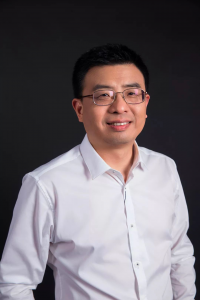
俞栋,腾讯AI Lab副主任,同时当选三大国际顶级学会(ACM,IEEE,ISCA) Fellow。
他的主要研究领域是自动语音识别、语音处理和自然语言处理等,是首批将深度学习应用到语音识别领域的研究者,60项专利发明人及开源软件CNTK开发者,谷歌学术引用量高达52583次,曾获得2013年和2016年IEEE信号处理协会最佳论文奖。
俞栋本科就读于中国浙江大学电子工程专业,之后在美国印第安纳大学计算机获得硕士学位,后又获得了中国科学院自动化所模式识别与智能控制硕士学位及美国爱达荷大学计算机博士学位。
1998年,俞栋加入微软,2002年进入微软研究院语音和对话组(Speech and Dialog Group),曾任首席研究员,兼任浙江大学兼职教授和中科大客座教授。2017年5月2日,俞栋加入腾讯AI Lab担任副主任,并成立美国西雅图AI实验室。

梅宏,北京大学软件研究所教授,IEEE Fellow、ACM Fellow。
主要从事软件工程和系统软件领域的研究,在构件化软件中间件、开发方法学和工具环境等方面取得了系列成果。曾任国家863计划专家组成员、国家863计划“十二五”信息技术领域先进计算技术主题专家组组长、国家“核高基”科技重大专项专家组成员等。现任中国计算机学会大数据专家委员会主任,中国软件行业协会副理事长,全国信息技术标准化技术委员会SOA分技术委员会主任,全国信标委大数据标准工作组组长,国务院学位委员会网络与空间安全学科评议组召集人,教育部科学技术委员会副主任。担任多个国内外学术期刊编委,数十次担任重要国际学术会议程序委员会主席或委员。
2005年被聘为教育部长江学者奖励计划特聘教授,2011年当选为中国科学院信息技术科学部院士,2013年当选发展中国家科学院院士。
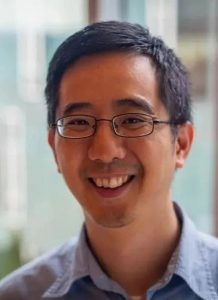
洪宜安(Jason Hong),CMU计算机系教授。
洪宜安本科就读于佐治亚理工学院93级软件工程与操作研究与离散数学专业,博士毕业于加州大学伯克利分校。他的研究兴趣是人机交互、隐私与安全的交叉研究与系统,主要研究课题有两个:1)如何使用丰富的感知数据来改善生活;2)如何保护每个人的隐私与安全。
目前,洪宜安领导着 CHIMPS(计算机人类交互:移动隐私安全)研究小组,致力于使用人机交互、机器学习、系统和社会心理学的思想和方法,研究智能手机隐私、可用安全性以及人工智能偏见和公平性。他的团队在反网络钓鱼方面的工作已经得到应用,启发了反网络钓鱼浏览器警告的设计。其在隐私方面的研究影响了行业和在政策制定者在智能手机隐私方面的工作。

邢波,CMU计算机系教授、MBZUAI校长,Petuum公司创始人。
邢波有丰富的跨学科背景,横跨物理、生物和计算机科学三门学科。1993年,邢波在清华大学获得物理学和生物学学士学位。1999年,他又前往新泽西州立大学攻读分子生物学与生物化学博士;在此期间,他还取得了该校的计算机科学硕士。2000年,邢波进入美国加州大学伯克利分校攻读计算机科学博士。
邢波的研究方向是机器学习和统计方法的开发以及大规模计算系统和体系结构,曾撰写370余篇研究论文和报告,目前,他的谷歌学术引用量已达到48071次。
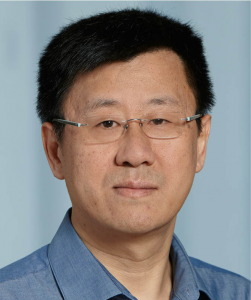
苏振东(Zhendong Su),苏黎世联邦理工学院计算机科学系教授。
苏振东于1988年进入复旦大学国际贸易专业就读,1991年本科毕业后在威斯康辛大学商学院继续学习了两年。之后,他转向计算机方向,进入德克萨斯大学奥斯汀分校就读本科,1995年在该校获得计算机科学理学学士学位和数学文学学士学位。2002年,在加州大学伯克利分校获得计算机科学博士学位(辅修数学),其后加入加州大学戴维斯分校,担任教授和校长研究员,2019年入职苏黎世联邦理工学院。
苏振东致力于基础开发和实用型创新,构建可靠、安全、高性能和可用的软件,推动工程软件的科学和实践进展。他的研究涵盖编程语言、编译器、软件工程、计算机安全和系统、机器学习和教育技术等。他的研究获得了大量奖项,如ACM SIGSOFT影响力论文奖(2018年),ICSE最具影响力论文(MIP)奖(2022年)和谷歌学术经典论文奖(2017年)等等。
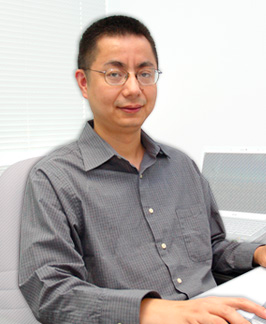
俞益洲,香港大学教授,担任IEEE Fellow、ACM Fellow。
本科毕业于浙江大学计算机科学与工程学专业,后在浙大还获得了应用数学硕士学位。俞益洲师从中国第一个在 SIGGRAPH (1988年)上发表论文的图形学先驱彭群生,后来因在几何建模和基于图像的建模方面贡献突出当选了2019年 IEEE Fellow。
俞益洲的研究兴趣包括深度学习、计算机视觉、图像处理、医学人工智能和计算机图形学。他是2002年美国国家科学基金会 CAREER 奖、ACCV 2018年最佳应用论文奖、ACM SCA 2011年和2005年最佳论文奖以及1998年微软研究生奖学金的获得者。俞益洲与他人共同发明的技术经常被电影和医疗保健行业采用,对人工智能和视觉计算方面做出了重要贡献。
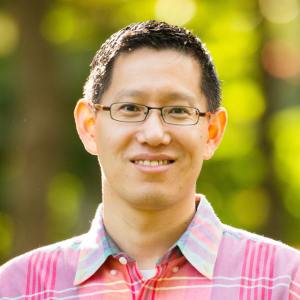
林之平(Jimmy Lin),加拿大滑铁卢大学计算机科学系教授。
2004年,林之平博士毕业于麻省理工学院,后于美国马里兰大学帕克分校任教。2009年,曾在 Cloudera 工作,协助他们建立培训和认证系统,并设计了他们的第一次认证考试。2010年到2012年间,林之平曾在推特,负责开发用户和分析的相关功能,以支持推特分布式系统基础架构和机器学习库的工作。

Haitao(Heather)Zheng,芝加哥大学计算机科学Neubauer教授。
于1999年在马里兰大学帕克分校获得电气和计算机工程博士学位。Heather Zheng 曾先后就职于贝尔实验室、新泽西州和微软亚洲研究院,2012 年加入加州大学圣巴巴拉分校。2017年,Heather Zheng 加入芝加哥大学,与Ben Y. Zhao教授共同领导 SAND 实验室(系统、算法、网络和数据)。
纪怀新(Ed H. Chi),谷歌杰出科学家,目前在谷歌大脑工作。
于1994年获得明尼苏达大学学士学位,1996年获得同校硕士学位,1999年获得同校博士学位。1997年进入帕罗奥多研究中心担任实习生,2017年升任为首席科学家。
纪怀新的研究领域包括神经推荐、强化学习、大型语言模型和对话系统。他拥有 39 项专利和 200 篇研究文章,还以研究网络和社交媒体中的用户行为而闻名。
在加入谷歌之前,纪怀新是施乐帕洛阿尔托研究中心增强社会认知小组的首席科学家,研究社交网络如何帮助人群记忆、思考和推理。纪怀新在明尼苏达大学用 6.5 年完成了 3 个学位(学士、硕士和博士学位)。他被公认为ACM杰出科学家并入选CHI学院,还因信息可视化研究而获得了2020年的时间测试奖。

纪怀新(Ed H. Chi),谷歌杰出科学家,目前在谷歌大脑工作。
于1994年获得明尼苏达大学学士学位,1996年获得同校硕士学位,1999年获得同校博士学位。1997年进入帕罗奥多研究中心担任实习生,2017年升任为首席科学家。
纪怀新的研究领域包括神经推荐、强化学习、大型语言模型和对话系统。他拥有 39 项专利和 200 篇研究文章,还以研究网络和社交媒体中的用户行为而闻名。
在加入谷歌之前,纪怀新是施乐帕洛阿尔托研究中心增强社会认知小组的首席科学家,研究社交网络如何帮助人群记忆、思考和推理。纪怀新在明尼苏达大学用 6.5 年完成了 3 个学位(学士、硕士和博士学位)。他被公认为ACM杰出科学家并入选CHI学院,还因信息可视化研究而获得了2020年的时间测试奖。
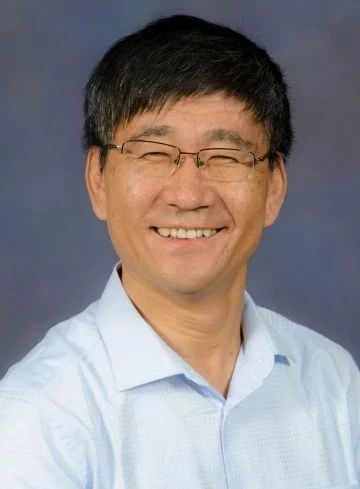
方玉光(Yuguang “Michael” Fang),香港城市大学讲席教授。
研究方向包括无线网络、物联网、网络安全等,谷歌学术被引用量已超过2.7万次。
1987年,方玉光在曲阜师范大学获得硕士学位,之后他于1994年获得凯斯西储大学博士学位,又在1997年获得波士顿大学博士学位。
2000年,方玉光加入美国佛罗里达大学电气与计算机工程系,于2019年晋升为杰出教授。2022年,他加入香港城市大学计算机科学系,担任物联网讲座教授。

傅佳偉(Kevin Fu),东北大学电子与计算机工程系教授。
研究方向是计算机安全,尤其是医疗设备相关的安全工程研究。
他在MIT取得了计算机学士学位、电子工程与计算机科学硕士学位以及博士学位,曾经在密歇根大学担任副教授。

郭宗杰,南加州大学教授。郭宗杰教授于1980年学士毕业于台湾大学电机系,后在麻省理工学院度过了他的硕士和博士生涯。1987年,他曾短暂加入加利福尼亚大学洛杉矶分校,任数学系研究助理教授,后于1989年赴南加州大学电机系,并留任至今。
郭宗杰教授美国国科学会年轻学者研究奖、美国总统教授学者奖、美国南加州大学工学院年轻教授研究奖、美国南加州大学梅隆杰出导师奖、大川情报通信基金研究助成奖、国际影像科学技术学会与国际光学学会授予的年度杰出影像科学家奖、Fulbright-Nokia杰出信息和通信技术首席科学家奖等。在视觉交流与图像表征期刊,郭宗杰任主编;在信息科学与工程期刊,郭宗杰任编辑;在IEEE语音和音频处理,郭宗杰任联合编辑。
据统计,在他的学术生涯中,郭宗杰教授共发表过1287篇学术著作,共被引用27529次。郭宗杰院士不仅作为学者相当高产,他也为教育事业奉献良多,36年来培养了160余位博士生,其中3/4投身工业界,为技术应用落地提供了大量的人才。
完整名单
| Maneesh Agrawala Stanford University For contributions to visual communication through computer graphics, human-computer interaction, and information visualization |
Anima Anandkumar California Institute of Technology For contributions to tensor methods for probabilistic models and neural operators |
| David Atienza Alonso EPFL For contributions to the design of high-performance integrated systems and ultra-low power edge circuits and architectures |
Boaz Barak Harvard University For contributions to theoretical computer science, in particular cryptography and computational complexity, and service to the theory community |
| Michel Beaudouin-Lafon Université Paris-Saclay For contributions to human-computer interaction, instrumental interaction and generative theory, and community leadership |
Peter Boncz Centrum Wiskunde & Informatica (CWI)), Vrije Universiteit Amsterdam For contributions to the design of columnar, main-memory, and vectorized database systems |
| Luis H. Ceze University of Washington For contributions to developing new architectures and programming systems for emerging applications and computing technologies |
Ranveer Chandra Microsoft For contributions to software-defined wireless networking and applications to agriculture and rural broadband |
| Nitesh Chawla University of Notre Dame For contributions to machine learning research for imbalanced data, graphs, and interdisciplinary innovations |
Ed H. Chi For contributions to machine learning and data mining techniques for social computing and recommender systems |
| Corinna Cortes For theoretical and practical contributions to machine learning, industrial leadership, and service to the field |
Bill Curtis CAST Software/ Consortium for Information and Software Quality (CISQ) For contributions to software process, software measurement, and human factors in software engineering |
| Constantinos Daskalakis Massachusetts Institute of Technology For fundamental contributions to algorithmic game theory, mechanism design, sublinear algorithms, and theoretical machine learning |
Kalyanmoy Deb Michigan State University For technical contributions in evolutionary multi-objective optimization algorithms and multi-criterion decision support |
| Bronis R. de Supinski Lawrence Livermore National Laboratory For contributions to the design of large-scale systems and their programming systems and software |
Sebastian Elbaum University of Virginia For contributions to the analysis and testing of evolving systems and robotic systems |
| Yuguang “Michael” Fang City University of Hong Kong For contributions to wireless networks and mobile computing |
Kevin Fu Northeastern University For contributions to computer security, and especially to the secure engineering of medical devices |
| Craig Gotsman New Jersey Institute of Technology For contributions to computer graphics, geometry processing, and visual computing |
Ahmed E. Hassan Queen’s University For contributions to the quality assurance of large-scale software systems |
| Abdelsalam (Sumi) Helal University of Florida For contributions to mobile and pervasive computing, and their applications in graceful aging and accessibility |
Jörg Henkel Karlsruhe Institute of Technology For contributions to hardware/software co-design of power and thermal efficient embedded computing |
| Manuel V. Hermenegildo Universidad Politecnica de Madrid & IMDEA SW Institute For contributions to program analysis, verification, parallelism, logic programming, and the IMDEA Software Institute |
Michael Hicks University of Maryland, Amazon Web Services For contributions to programming language design and implementation, program analysis, and software security |
| Torsten Hoefler ETH Zurich For foundational contributions to High-Performance Computing and the application of HPC techniques to machine learning |
Jason Hong Carnegie Mellon University For contributions to ubiquitous computing and to usable privacy and security |
| Sandy Irani University of California, Irvine For contributions to the theory of online algorithms and quantum complexity theory |
Hiroshi Ishii MIT Media Lab For contributions to tangible user interfaces and to human-computer interaction |
| Alfons Kemper Technical University of Munich For contributions to database management system technology |
Samir Khuller Northwestern University For contributions to algorithm design with real-world implications and for mentoring and community-building |
| Farinaz Koushanfar University of California, San Diego For contributions to secure computing and privacy-preserving machine learning |
C.-C. Jay Kuo University of Southern California For contributions to technologies, applications, and mentorship in visual computing |
| Hang Li Bytedance For contributions to machine learning for search and dialogue |
Jimmy Lin University of Waterloo For contributions to question answering, information retrieval, and natural language processing |
| Radu Marculescu The University of Texas at Austin For contributions to low-power and communication-based design of embedded systems |
Hong Mei Peking University For contributions to software engineering research and translation, and establishing research standards in China |
| David M. Mount University of Maryland at College Park For contributions to algorithms and data structures for geometric data analysis and retrieval |
Gonzalo Navarro University of Chile For theoretical and practical contributions to the fields of text searching and compact data structures |
| Rafael Pass Cornell University, Tel-Aviv University For contributions to the foundations of cryptography |
Marc Pollefeys ETH Zurich, Microsoft For contributions to geometric computer vision and applications to AR/VR/MR, robotics, and autonomous vehicles |
| Alex Pothen Purdue University For contributions to and leadership in combinatorial scientific computing |
Moinuddin Qureshi Georgia Institute of Technology For contributions to memory hierarchy design |
| Ashutosh Sabharwal Rice University For the invention of full-duplex wireless and open-source wireless research platforms |
Timothy Sherwood University of California, Santa Barbara For contributions to computer system security and performance analysis |
| Stefano Soatto University of California, Los Angeles For contributions to the foundations and applications of visual geometry and visual representations learning |
John T. Stasko Georgia Institute Of Technology For contributions to the design, analysis, usage, and evaluation of software and information visualization |
| Zhendong Su ETH Zurich For contributions to software testing and analysis |
Gary J. Sullivan Microsoft For contributions to video and image compression and leadership in its standardization |
| Jaime Teevan Microsoft For contributions to human-computer interaction, information retrieval, and productivity |
Kentaro Toyama University of Michigan For contributions to the innovation and critique of digital technology for socio-economic development and social justice |
| Rene Vidal Johns Hopkins University, University of Pennsylvania For contributions to subspace clustering and motion segmentation in computer vision |
Eric Xing Carnegie Mellon University, Mohamed bin Zayed University of Artificial Intelligence For contributions to algorithms, architectures, and applications in machine learning |
| Dong Yu Tencent For contributions in speech processing and deep learning applications |
Yizhou Yu University of Hong Kong For contributions to computer graphics and computer vision |
| Haitao (Heather) Zheng The University of Chicago For contributions to wireless networking and mobile computing |
Wenwu Zhu Tsinghua University For contributions to multimedia networking and network representation |
| Denis Zorin New York University For contributions to computer graphics, geometry processing, and scientific computing |

